CASS compliance needs automated reconciliations
The UK Financial Conduct Authority (the FCA) regulates more than 50 thousand financial institutions (brokers, investment banks, custodians) which hold or control client money and custody assets or are involved in debt management. Each of them must make sure to comply with the FCA Client Asset Sourcebook (CASS) guidelines for different lines of business. The purpose – protection of clients’ interest through unified standards and transparency of operations. The method – multi-level control and regulatory reporting to verify data through rigorous data reconciliation, carried out with speed and precision to meet multiple compliance requirements and be guided by best practices. Clearly, CASS compliance is a critical consideration for financial services firms.
ReconArt smoothly and flawlessly handles the typical recon processes related to CASS compliance, which can be broadly categorized as classic bank reconciliation plus variations of positions, holdings, and trades reconciliation:
Reconciliations & checks of safe custody assets (CASS 6):
Firm operating under CASS 6 regulations (safe custody assets) are obliged to perform three types of check / reconciliations.
The internal record check
is performed every month and compares internal aggregate and client-specific records. These checks must verify that own records and accounts correspond to the firm’s obligation to its clients. The evaluation process must also ensure the completeness and accuracy of internal records and the ability to detect and resolve discrepancies effectively.
The physical check of assets
under safe custody is performed every six months. This inventory reaffirms that the deposited assets are accurately reflected in the firm’s internal records.
The external custody reconciliations
uses third party data sources and compares them against internal records. This is a monthly process where account balances are reconciled rather than individual transactions.
Client money reconciliations (CASS 7)
Internal client money reconciliations
are performed each business day. Internal records of for each client are compared against the client money placed in client bank accounts / client transaction accounts. Any discrepancies, like for example, a client receipt of money recorded in the cashbook, but yet to be deposited in the client bank account, must be corrected on the following business day latest.
Segregation of client money
Client money and assets must be clearly distinguished from the firm’s money and assets. Normally, that happen through depositing client money directly into the client bank account, instead of the firm’s own account and then reallocated. The alternative approach for segregation of client money, however, requires it to carry out internal client money reconciliation on each business day. Daily balance checks and adjustment calculations address potential discrepancies with shortfalls / excesses in the client account that must be corrected on recon day.
External client money reconciliation
compare internal records & accounts of client money vs those of any third parties which hold client money. In this case daily reconciliations are performed on account balance level, comparing currency by currency. In essence, the process is looks like a classic bank statements reconciliations comparing internal records to third-party account status confirmations.
CASS compliance challenges and the benefits of automated account reconciliation with ReconArt
On the journey to structured and audit proof processes, companies must leverage advanced recon solutions to meet the changing requirements flexibly and maintain best practices. Despite the differences in the business essence, there are common challenges that are successfully tackled by ReconArt:
Regular regulatory submission and reporting for CASS compliance
FCA regulated firms submit various reports in RegData (formerly Gabriel) – a data collection platform. For example: the CMAR (Client Money and Asset Return) form is filed monthly and contains reconciliations summaries. In this respect, firms need an adequate reconciliation tool capable of automating statutory reporting data submission. ReconArt supports regular FCA reporting via any of the available automated, semi-automated, and manual methods.
Daily frequency of reconciliations
CASS mandates reconciliation cycles depending on the frequency, number and value of transaction, the nature of the business, transaction volumes & complexity. Daily cash recon is also recommended as a best practice and is perfectly feasible with ReconArt.
Electronic records from multiple sources are processed in a secure digital environment as automated scheduled tasks. Superb automated matching features compare large data set and rid the back office teams of error-prone manual operations. Risk situations are identified for a fraction of the time needed before and the reconciliations backlog is reduced or cleared.
Identification and management of discrepancies
CASS pays special attention to discrepancy treatment. The regulations mandate multiple levels of verification and regular checks to guarantee timely identification of discrepancies. Once spotted, variances should be categorized, sorted, and slated for investigation. Adequate, properly documented actions to address inconsistencies is also part of the compliance requirements.
Discrepancies might be connected to shortfalls – insufficient funds in the client bank account to satisfy the claim of clients. CASS regulated firms should make arrangements to promptly satisfy contract obligations and align with client instructions. Common types of discrepancies:
- erroneous over/understating (e.g. test entries and balancing entries)
- negative balances
- processing errors
- journal entry errors (e.g. omissions and unauthorized system entries)
- IT errors (e.g. software issues that could lead to inaccurate records) /// suspense & error accounts, liquidated stocks
ReconArt provides comprehensive tools for automated, rule-driven exceptions categorization and ageing tracking to accelerate the exceptions resolution. Flagging, filtering and reporting on outstanding items keeps responsible officers alert about backlog piling up. The Cases functionality groups and assigns exceptions to individuals or departments for further analysis. Tracking until resolution, management visibility, and multi-sided controls are enabled.
Strict separation of duties for CASS compliance and sound internal controls
As part of the CASS compliance, firm should demonstrate clear segregation of the assigned responsibilities and efficient internal controls. The officer performing the reconciliations must be different from the person in charge of records creation / maintenance. CASS 10, for example, defines 3 clearly separated domains of responsibility:
- Preparer of both internal and external client money and safe custody asset reconciliations and record checks;
- Owner of client documentation;
- CASS operational oversight reporting to the firm’s governing body.
ReconArt regulates user access right to the reconciliation accounts on a very granular level. Restrictions can be imposed on both operational (the processes managed within the reconciliation platform – e.g. import, matching, exceptions investigation, reporting) and functional level (the modules and the settings of the reconciliation platform itself).
Record keeping and data integrity requirements for CASS compliance
CASS enforces records storage and retention policies varying from 5 years to indefinitely. Archived data from past reporting periods should be readily available to retrieve during audits and that often causes hectic searches in disparate storage locations.
ReconArt is a total reconciliation lifecycle solution serving as a central repository for all reconciliations data. The system accommodates easy and straightforward access to historic balance and transaction level data as well as individual client and aggregate records. Segregation between internal and obtained from third parties records is maintained and traceable via file import logs and filtering functionalities.
Accuracy and granularity of account reconciliations for CASS compliance
CASS requirements for client level detail on account balance and movements can be satisfied with a versatile and fully configurable reconciliation platform such as ReconArt. Rule-driven matching by multiple criteria ensures solid and auditable logic applied across all compared items. Automation takes inconsistencies, manual errors, or arbitrariness out of the equation. The system provides account drill-down options for granular overview of matched transactions, unresolved exceptions and their aging.
Deadlines and compliance response time
The prompt response to FCA and the Bank of England requests is part of the firms’ compliance readiness. CASS 7 and CASS 10 Resolution Pack stipulate two business days’ timeframe to determine the exact holdings at individual client level in any given moment or 48 hours turnaround to provide up-to-date check and reconciliations, both internal and external.
Delays to comply are more likely when reconciliations are performed in disparate systems, manually or in spreadsheets. Input files, signed-off reports, and substantiation documentation can be retrieved momentarily.
CASS compliance mandates audit-ready reconciliations
ReconArt captures a detailed audit trail for the full reconciliation lifecycle of each transaction imported in the platform. Documents explaining commitments can be linked / attached to the reconciliation accounts. That resolves one of the main issues around audit readiness and all-round preparedness to promptly produce justification for completed transactions.
The cost of non-compliance as a result of operational deficiencies
The investment & trading ecosystem is complex, fast-paced and stringently regulated. Compliance is a daily struggle and reconciliations are a central part of the effort. Manual or semi-manual reconciliation methods even for smaller firms cannot satisfy the need for speed, precision, and efficiency. With the right tool at hand, CASS regulated firms can enforce accountability and transparency, preventing reputational damages and eroded credibility.

 follow our blog
follow our blog
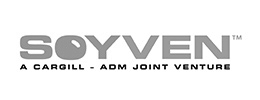

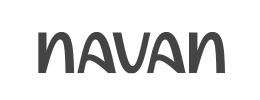
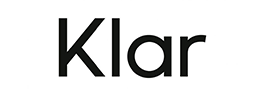



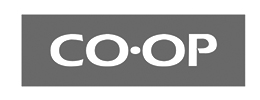

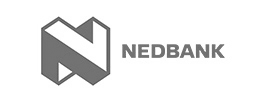


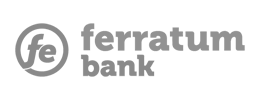
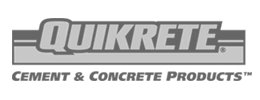

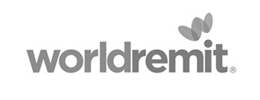






 Quick response
Quick response

